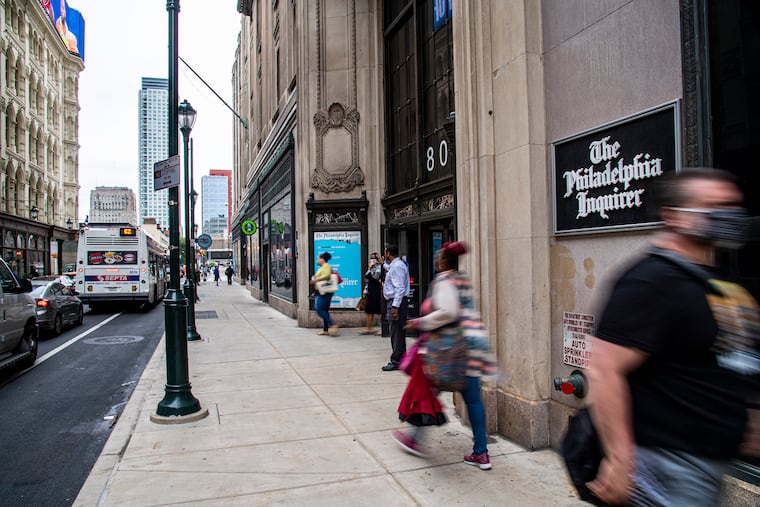I spent 31 years at The Inquirer, and I’m proud of our diversity efforts | Opinion
Spurred by the newspaper’s recent self-examination, the author recalls initiatives started by Pulitzer Prize-winner Acel Moore and others.

As a member of the recent Temple University audit committee of The Philadelphia Inquirer, I applaud the hard work that publisher Elizabeth H. Hughes and her editors are undertaking to improve both the content and representation of the paper’s various communities of color.
Wesley Lowery’s article examining race at The Inquirer, “Black City, White Paper,” failed to mention important diversity initiatives undertaken during the years that Gene Roberts, Gene Foreman, and Maxwell E.P. King edited the paper. I spent more than 15 years, from 1985 through 2000, assisting Acel Moore — a longtime associate editor and columnist at The Inquirer, my colleague and dear friend — in leading diversity and inclusion efforts in the newsroom.
While Lowery noted that Moore was one of the first African Americans to win a Pulitzer Prize, he ignored that Moore, Chuck Stone, Sandra Long, Elmer Smith, and Claude Lewis served as founding members of the National Association of Black Journalists. He also failed to recognize that Will Sutton, Vanessa Williams, Herbert Lowe, and Sarah J. Glover, who developed their careers at The Inquirer, would go on to serve as presidents of the association. He also missed the contributions that Michael Days accomplished as editor of the Daily News and a senior editor at The Inquirer.
If our “racist” history and lack of empathy for the community during this period merited an apology, I wonder why so many Black men — many with serious legal troubles — journeyed to our newsrooms to ask Moore or Stone to help them?
» READ MORE: The Inquirer’s look at itself described an organization that I didn’t recognize | Opinion
Moore also felt a sense of personal mission to inspire Black students to pursue the profession he loved. With the support of Foreman, then the paper’s managing editor, Moore created the first copy desk internship for collegiate journalists of color. That program — named for late Art Peters, who in the 1970s worked as the paper’s first Black columnist — served as a template for other professional development programs for students of color around the industry. With the help of both Black and white staffers, Moore also started one of the industry’s first newspaper high school workshops.
When The Inquirer’s corporate parent in the 1980s, Knight-Ridder, decided that the chain’s newspapers should develop strategic pluralism plans, Roberts asked Moore and me to craft a hiring and content proposal. That work resulted in the creation of a residency program to recruit and train entry-level journalists of color in health, science, criticism, business, and photography. The initiative to improve diverse voices in sports also led to the hiring of Stephen A. Smith, now of ESPN.
When The Inquirer of the ‘90s did its own audit, we spotted gaping holes in coverage that led to significant changes in the way we went about our work. We began rethinking everything from the kinds of expert sources we cited in our news articles to who merited an obituary.
» READ MORE: The Inquirer’s look at itself ignores the paper’s history of exposing racial injustice | Opinion
For our efforts, Knight-Ridder recognized The Inquirer with its first Excellence in Diversity Award in 1995. It was the proudest moment in my 31-year career.
Undoubtedly, there were issues of racial and ethnic insensitivities, discrimination, and obvious ignorance that Lowery correctly pointed out in his report. Considering the size of the newsroom back then, it was impossible to police behavior. What Lowery failed to note were the many other communities — Italian Americans, LGBTQ, and conservative suburban Republicans — who visited our newsroom to complain about our “liberal” coverage. Given the geographical range and the demographic challenges we were tasked to cover, it was impossible to be all things for all people. Yes, we missed stories. But to say that we did not try is wrong.
Arlene Notoro Morgan is the assistant dean for external affairs at the Klein College of Media and Communication at Temple University. She spent 31 years as a reporter and editor at The Inquirer and helped lead the newsroom’s hiring and diversity efforts as assistant managing editor.